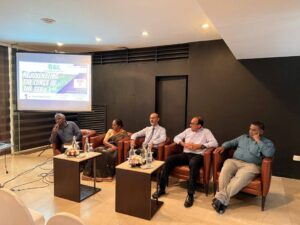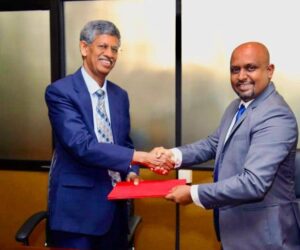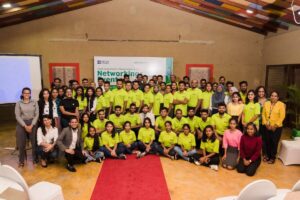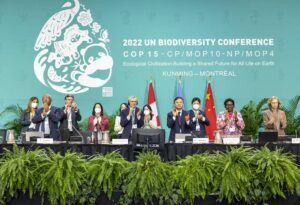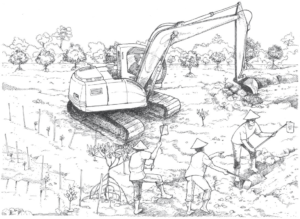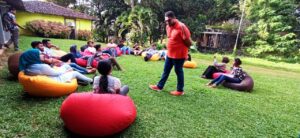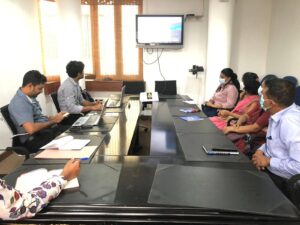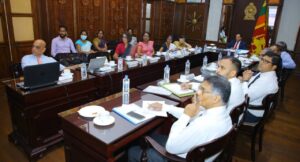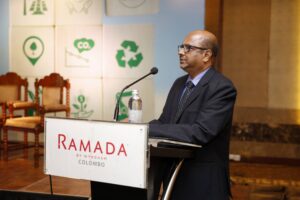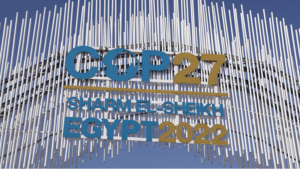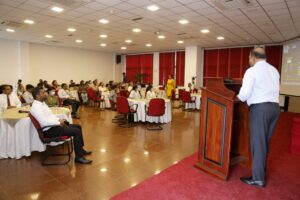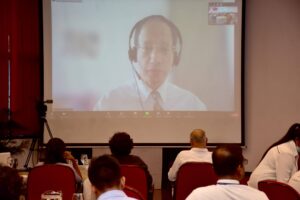This month we met with Rookantha Rajapakse, Manager Forestry & Certifications of Lalan Agri Diviision, Lalan Group in our “IN CONVERSATION” segment. Rookantha serves as the BSL Focal Point for General Member Lalan Rubbers.
BSL: Briefly introduce your company and yourself
A: Lalan Agri Division (LAD) which is one of Sri Lanka’s highest-yielding rubber plantations, is a part of Lalan Group, a pioneer in rubber manufacturing in South Asia. LAD’s commitment to the highest standards of quality forms the backbone of its operations. LAD’s 15 estates located in the Kegalle and Kurunegala Districts in Sri Lanka spans over some 9000 hectares of land, where a multitude of crops have been cultivated including rubber, coconut, cinnamon, oil palm, tea, and forestry. The estates engage over 3000 employees – skilled and unskilled workers, staff and management personnel. Crop diversification has helped LAD in enhancing land productivity of the estates which has directly resulted in the increase of worker earnings. The diversified crop portfolio provides LAD with a natural hedge against adverse impacts from environmental factors, plant diseases and price fluctuations in commodity markets, making LAD’s operations more sustainable. The varying range of crops helps in improving bio diversity of these large areas of estate lands and in maintaining the ecological balance of the environment.
I have been with the Company for over ten years, and at present hold the position of Manager, Forestry and Certifications. I earned my Bachelor’s degree in Science from the University of Sri Jayewardenepura, and my Master’s degree in Business Administration from Cardiff Metropolitan University.
BSL: What drives your sustainability agenda, and what are the key focus areas?
A: We are FSC™ certified (FSC-C101709) and have complied with the FSC standards since 2010. Due to sustainability compliance, we are in a favorable position to measure and comprehend, our economic, environmental and social impacts to our stakeholders. The company provides a host of facilities to all employees and their families on the estates, regardless of employment status, including housing, medical care, preschool facilities and pre- and post-natal care. The LAD managed estates have a residential population of approximately 15,000, and are the direct beneficiaries of the estate operations. It is believed that a similar number or more persons (such as contractors, suppliers who transact with the estates and their families) could be identified as indirect beneficiaries of these estate economies. We are especially proud of the high standards of agricultural practices that we adopt and the way we train and develop our employees, and how much we care about protecting the environment.
BSL: Give us an outline of your current sustainability initiatives/ Projects
A: Since its inception LAD has been engaged in carrying out social welfare projects that benefit not only the communities within our estates, but also the population of the villages and towns in the vicinity of its estates. Since 2013 these activities have been expanded with additional funding sourced from the Fair Rubber Organization. So far, we have completed over 100 projects worth Rs 46 million benefitting significant number of beneficiaries. We carry out these projects focusing on the 17 Sustainable Development Goals, to achieve a better and more sustainable future for all. Social welfare projects completed so far include provision of access to clean water, improving the living conditions in worker housing, providing facilities and assistance for children’s education & growth, provision of medical facilities, assisting in the maintenance of religious and culturally significant locations, provision of sports/recreational facilities & encouraging the communities to participate in sports. The restoration of Sri Lanka’s only motorable suspension bridge located in Deraniyagala, Sri Lanka, which spans over the Seethawaka River, and its periodic maintenance is a significant highlight.
Suspension bridge – Reucastle Estate, Deraniyagala
Land is one of the most valuable resources of a plantation. LAD invests heavily in the soil conservation and moisture retention activities, through draining, terracing, erosion control, etc.
BSL: What are your company’s key achievements in the sustainability domain and the reasons behind your success?
A: The company has managed to reduce its CO2 emissions by an average of 4,677 tons per year, through the restoration of 225 hectares of degraded land by planting of Rubber. The company has been able to neutralize some emissions from downstream glove manufacturing activities using the carbon credits earned through the emissions reduced from the aforementioned project. Our most recent Biodiversity assessment, conducted across all 15 estates with the help of Prof. Devaka Weerakoon and his team of experts from the Colombo University, resulted in the sighting of the dragonfly “Flint’s Cruiser (Macromia flinti)” in a riverine habitat on one of our estates. This detection is particularly significant because this would be the first confirmed record of this critically endangered species in 50 years, which had been previously listed as a Data Deficient species due to a lack of records.
Flint’s cruiser – Macromia flinti (Photo credit: Mr. Amila Sumanapala)
The company’s efforts in protecting the environment have been significant. With the company’s help, over 60 High Conservation Value (HCV) sites and approximately 850 hectares of forest lands have been conserved. In addition, all possible steps have been taken to preserve the stream reservations as well as the mountain tops located in the agricultural fields. The above achievements would not have been possible without the conscious decisions of our management directed at the creation of long-term value & sustainability, and their general strategic supervision. This enthusiasm permeates throughout the organization, resulting in everyone working together to achieve the company’s sustainability objectives.
BSL: What are the challenges you see in driving your sustainability agenda forward in the current, extremely volatile business context?
A: It is problematic that the country’s PESTEL factors are unclear and uncertain. In the post-Covid era, the industry has been severely affected by several diseases, shortages of workers, short-sighted and adhoc decisions of the policy makers and the global economic downturn. However, the company’s commitment to sustainability remains unchanged as we continue to pursue success in all areas.
BSL: Any interesting future plans?
A: Despite all the country’s issues, the company is committed to expanding its operations. The triple bottom line is where we will be putting our efforts into bettering our current practices. In order to better equip its workforce, the company will continue to focus on empowering the workers, while helping them with welfare projects in conjunction with the Fair Rubber Organization.
BSL: Any message/s/ recommendation/s to BSL Members aspire to be leaders in Corporate Sustainability?
A: The secret to success is the desire to excel at what you do, and to do it with purpose. Do not engage in sustainability work for the sole purpose of enhancing your company’s image. This is not a simple task, as you must collaborate with individuals at varying levels and categories while facing multiple obstacles. However, you will be proud of the outcomes, and the environment will improve over time.





